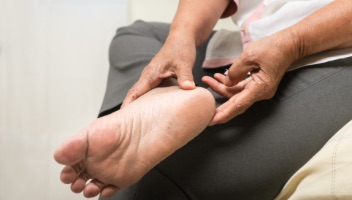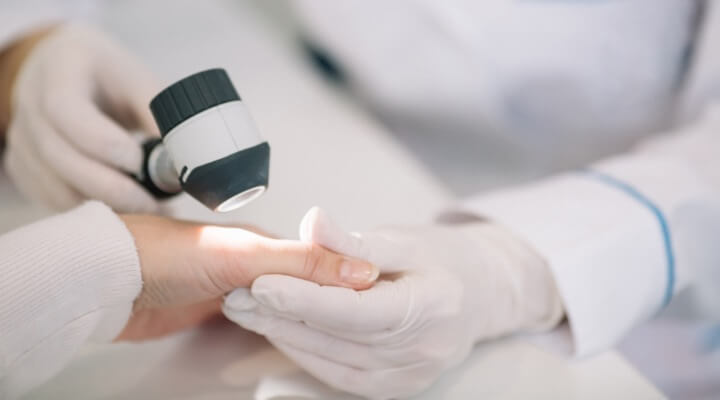Diabetes and Your Skin
Navigating the Impact of Diabetes on Your Skin
 Living with diabetes involves managing various aspects of your health, and while most people are familiar with the more commonly discussed implications, such as blood sugar levels and cardiovascular health, one often overlooked aspect is the impact diabetes can have on your skin. In this blog, we'll delve into the connection between diabetes and skin health, offering insights and tips for dermatology patients to navigate this sweet challenge.
Living with diabetes involves managing various aspects of your health, and while most people are familiar with the more commonly discussed implications, such as blood sugar levels and cardiovascular health, one often overlooked aspect is the impact diabetes can have on your skin. In this blog, we'll delve into the connection between diabetes and skin health, offering insights and tips for dermatology patients to navigate this sweet challenge.
The Diabetes-Dermis Connection:
Diabetes, a chronic condition affecting the body's ability to regulate blood sugar, can manifest its influence on the skin in several ways. Understanding these connections is crucial for individuals with diabetes to proactively manage their skin health.
Dry Skin and Itching
Infections and Slow Healing
Skin Discoloration
5 Tips for Managing Diabetes-Related Skin Issues:
- Control Blood Sugar Levels: The cornerstone of managing diabetes-related skin issues is maintaining optimal blood sugar levels. Consistent monitoring, medication adherence, and a healthy lifestyle, including a balanced diet and regular exercise, contribute to overall well-being.
- Hydrate and Moisturize: Combat dry skin by staying well-hydrated and using fragrance-free, hypoallergenic moisturizers. This helps to prevent cracking and itching while promoting a healthy skin barrier.
- Practice Good Hygiene: Regular bathing and keeping skin folds dry can reduce the risk of infections. Pay special attention to areas prone to yeast infections and use antifungal powders or creams as recommended by your dermatologist.
- Protect Your Skin: Be mindful of protecting your skin from cuts and injuries, especially on the feet. Proper footwear and daily foot inspections can help prevent complications.
- Consult Our Dermatologists: If you notice any unusual changes in your skin, don't hesitate to consult with one of our board-certified dermatologists. Early detection and intervention can prevent more serious complications.
Skin-Related Diabetes Issues Can Be Managed
Navigating the impact of diabetes on your skin requires a proactive and holistic approach. By understanding the diabetes-dermis connection and implementing these tips, individuals can empower themselves to manage their skin health effectively. Remember, a healthy lifestyle, optimal blood sugar control, and regular dermatological check-ups are your allies in keeping your skin in its best condition, despite the challenges of diabetes.
Featured Products
Check your local office for current stock!
Check your local office for current stock!



